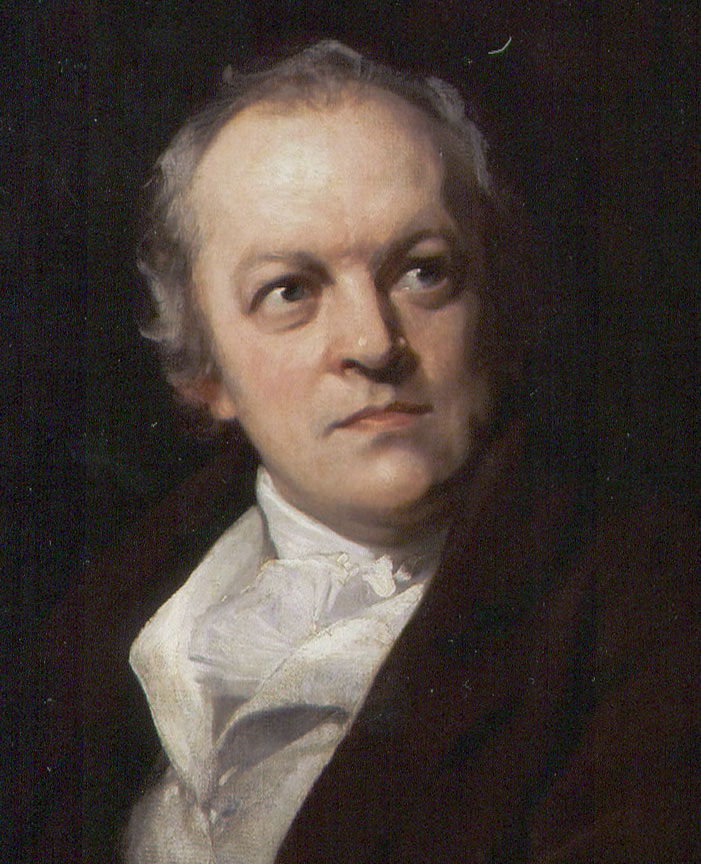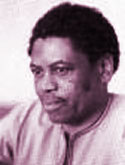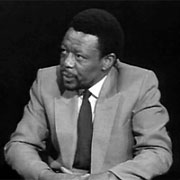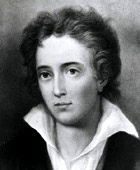In case you couldn't make the last class (Danielle's Psych students had a clash), I will be offering a repeat extra class on THURSDAY 30th April at 12:50 in room 24.
In order to help you prepare for exams, here are brief reminders of each poem on UNISA's list. This is not a substitute for attending class, merely a reminder of some of the more salient points in each poem in order for you to complete a good general critical analysis in an exam situation.
*** This is a work in progress - keep checking back, as I post more on each poem ***
SHABBIR BANOOBHAI (1949 - ) - When the First Slave Was Brought to the Cape
Things to look out for:
Form (particularly lack of capitalisation), positivity and tenses, blurring the boundaries between the possible and impossible through imagery, freedom of the spirit, the possiblities of refiguring the self.
WILLIAM BLAKE (1757-1827) - London
Things to look out for:
Mimesis in the endless, heavy rhythm, repetition, imagery, 'sound effects' in alliteration and assonance.
Seeing as they are only a couple of decades apart, it's particularly interesting to contrast Blake's representation of London with Wordsworth's in Composed on Westminster Bridge.
Things to look out for:
Mimesis in the endless, heavy rhythm, repetition, imagery, 'sound effects' in alliteration and assonance.
Seeing as they are only a couple of decades apart, it's particularly interesting to contrast Blake's representation of London with Wordsworth's in Composed on Westminster Bridge.
ROY CAMPBELL (1901-1957) - The Zulu Girl
Things to look out for:
Othering, association of women with the land/nature, foreshadowing of ominous future.
 HART CRANE (1899 - 1932) - My Grandmother's Love Letters
HART CRANE (1899 - 1932) - My Grandmother's Love LettersThings to look out for:
Imagery and its implications, sense of female lineage and desire, sexual/familial positioning, the significance of line breaks, water/memory imagery.
 ROBERT FROST (1874-1963) - Mending Wall
ROBERT FROST (1874-1963) - Mending WallThings to look out for:
Rhythm and form as examples of mimesis, register, literal and figurative meanings.
Things to look out for:
Form (particularly the lack of capitalisation and punctuation), youthful, romanticised notions of martyrdom, the childlike - though not childISH - speaking voice, 'sound effects' produced by alliteration and assonance.
JOHN KEATS (1795-1821) - When I Have Fears That I May Cease to Be
* Commentary coming *
PHILIP LARKIN (1922 - 1985) - Talking in Bed
This is Larkin's intricately structured examination of a dying relationship. Look at RHYME STRUCTURE, IMAGERY that reflects an uneasy relationship and the ironies of the title and FORM. Remember our discussion of the significance of the breakdown in rhyme and formal structure from the 'clean' first stanza through to the increasingly messy structure breakdown that occurs further on. This is can be seen as an example of mimesis - mirroring the breakdown in the relationship. Recall the significance of the number 3 in this poem - the odd number, three's a crowd etc. Also consider expectation ("should be the easiest") versus reality ("but more and more time passes silently"). Focus on those last, paradoxical "words at once true and kind/or not untrue and not unkind."
This is Larkin's intricately structured examination of a dying relationship. Look at RHYME STRUCTURE, IMAGERY that reflects an uneasy relationship and the ironies of the title and FORM. Remember our discussion of the significance of the breakdown in rhyme and formal structure from the 'clean' first stanza through to the increasingly messy structure breakdown that occurs further on. This is can be seen as an example of mimesis - mirroring the breakdown in the relationship. Recall the significance of the number 3 in this poem - the odd number, three's a crowd etc. Also consider expectation ("should be the easiest") versus reality ("but more and more time passes silently"). Focus on those last, paradoxical "words at once true and kind/or not untrue and not unkind."
OSWALD MTSHALI (1940 - ) - Men in Chains
Do NOT get this confused with Sepamla’s The Loneliness Beyond!
Look at:
Dehumanising animal imagery vs humanising sun imagery (personification) and the implications of this, anticlimax of doomed prophesy in final line.
Subversive use of the sonnet form, line breaks, feminist perspective.
 JOHN MILTON (1608-1674) - On His Blindness
JOHN MILTON (1608-1674) - On His BlindnessMilton's sonnet addressing his encroaching blindness. Although it is never good to conflate poet and speaker, in this case we can say that the speaker IS Milton himself. This is a very personal testament to his struggle with faith and purpose after failing eyesight has called into question his life choices. Look at STRUCTURE (particulars of Petrarchan sonnet and its typical association with love), ENJAMBMENT and its effect on the sense of RHYME, IMAGERY (particularly dark/light) and PUNS/WORD PLAY. Recall the Biblical parable of the Talents.
ESSOP PATEL (1943 - 2007) - In the Shadow of Signal Hill
A short, yet powerful call for violent revolution against Apartheid laws. Look at the IMAGERYand its IMPLICATIONS, as well as the TITLE and lack of PUNCTUATION/CAPITALISATION. Remember our geography quiz? District 6 is associated with forced removals, Langa is a township near the airport (where many black evicted residents might have gone) and Robben Island (where the "heroes" call from) is easily visible from Signal Hill. Signal Hill itself is famous for the noonday gun - a military symbol of the passing of time. What kind of alternate militant symbols of passing time are being called for in the poem?
SIPHO SEPAMLA (1932 - 2007) - The Loneliness Beyond
Do NOT get this one confused with Motshali’s Men in Chains!
Do NOT get this one confused with Motshali’s Men in Chains!
Things to look out for:
Look at IMAGERY (particularly animal/human contrasts and the themes of people's lack of individuality. Ask yourself whether, in the last few lines, there might be a subtle sense of forboding.
MONGANE SEROTE (1944 - ) - Alexandra
Things to look out for:
The speaker's inner child-voice that changes register, regression into childhood to parallel helplessness, imagery, continuous play between person/place (Alexandra as woman’s name and Alexandra as township).
Things to look out for:
The speaker's inner child-voice that changes register, regression into childhood to parallel helplessness, imagery, continuous play between person/place (Alexandra as woman’s name and Alexandra as township).
PERCY SHELLEY (1792-1822) - Ozymandias
Look at form, as well as line breaks. Notice and comment on the 'story within a story' approach.
Look at form, as well as line breaks. Notice and comment on the 'story within a story' approach.
 WOLE SOYINKA (1934 - ) - Capitol
WOLE SOYINKA (1934 - ) - CapitolA scathing political statement against the capitalist trade of a country's (and, thus, people's) access to basic natural resources. This poem is replete with PUNS ("germ", "dough", "tender", "sad"). Look also for basic contrast in IMAGERY (happy, smiling faces to sadness, embers to ashes etc).
 STEPHEN WATSON (1955 - ) - The Rain That is Male
STEPHEN WATSON (1955 - ) - The Rain That is MaleIt's important to recognise that this poem is a poetic interpretation and translation of the Bleek and Lloyd Collections, whcih are, themselves, translations of !Xam narratives and myths. that means that the politics of this piece are pretty fascinating, given your course preoccupation with 'selves and others'.
Things to look out for:
Form, male/female binaries.
 WILLIAM WORDSWORTH (1770 - 1850) - Composed Upon Westminster Bridge, Spetember 3, 1802
WILLIAM WORDSWORTH (1770 - 1850) - Composed Upon Westminster Bridge, Spetember 3, 1802Things to look out for:
Unusual figuration of the city/culture as feminine (and nature as masculine), extended metaphor of London as a beautiful woman, use of sonnet form, unusual Romantic extolling of the virtues of the city as pseudo-pastoral space.
William Butler Yeats ( 1865-1939) - The Second Coming
Things to look out for:
Image of spirals, revolution and thwarted communication, apocalyptic religious imagery, 'sound effects' in alliteration and assonance.


















i hear that you managed to do all the poems. where was this and when was it because i never knew of poetry discussion classes. i have been battling with research and now i find out there were classeshow come ENN students were not informed
ReplyDeleteHi there anonymous.
ReplyDeleteIf you're attending my Varsity College classes regularly, you would have heard me advertise the classes. I also sent out smses to each of my students and advertised the class times and venues on the blog.
Are you one of my students? If so, please come and visit me in my office so we can discuss your study preperation.
Good morning.I am an overseas student of UNISA and I wanted to ask you a few tips for Stephen Watson's " the rain that is male", since I have to work alone and look for the notes myself, a little help from you would be a blessing.
ReplyDeletei also wanted to ask you whether I could attend your class via satellite broadcast, if you know what I mean.
I thank you in advance..
Hi there. Good to know we've broken the South African barrier and got an international student in!
ReplyDeleteI lecture for a private college that provides support for UNISA material. As such, I'm afraid it's not possible for me to give access to my classes to anyone who is not a registered student at the college.
However, from next semester, I will be working as a freelance lecturer and will be able to provide one-on-one support to student needing help with UNISA subjects. Please keep checking back to this blog next semester for information on how to contact me for essay draft feeback, lecture notes and additional information.
As for the Stephen Watson poem, a freebie tip is to look at the sentence length. When stanzas speak of the 'male rain' (with all traditional Patriarchal connotations of strength, activity and violence), Watson uses short, abrubt and often exclamatory sentences. When the 'female rain' is spoken of, however, the sentences become longer, more flowing and seperated by commas. There are more lower case letters beginning each line, mimicing the gentleness of the rain. In this way, Watson has employed mimesis (art imitating life)to make how the poem is written reflect what the poem is about.
Good luck with your exams!
hi carla
ReplyDeleteTHAN YOU for all your help covering all the poems. I am however still waiting for your commentory on "When I have fears that I may cease to be" It's the only poem I didn't cover in your classes... Hopefully you get this in time!
thanks again
wendy
Hi Wendy
ReplyDeleteSome quick ideas:
1 - It's a Shakespearian sonnet (as you will have noticed from the 4 quatrains and rhyming couplet).
2 - The poem expresses his fears that death will take him before he has fully tasted fame, romance and success.
3 - Look at the 1st quatrain as his desire to wring as much talent and words from his brain as possible in the time he has. There is a strong earthy metaphor going on there - he talks about wanting to "harvest" his thoughts and how words and letters build up in books like grain storehouses (think of Soyinka's 'Capital' here!).
4 - He is also struck in the second quatrain by the sense of missing out on romance - nights of intriuge and passion?
5 - Quatrain 3 focuses on his lover, whom he may have to leave before he wishes to. He had TB, which was a pretty nasty one before modern medicine (and you can bet the hacking coughing wouldn't be overly sexy either...).
6 - The couplet - as is often the case - completely turns the generally pervasive negativity and sense of 'missing out' around. It suggests that, when he really thinks about it - there are bigger things in life than fame and romance and that maybe he should let his petty fears go.
high i am a first year student leave in pretoria i would also love to attend on weekends because during the week i am working if possible i would love one on one session with you pls send me more info on lutendo@raf.co.za
ReplyDeleteHI CALA
ReplyDeleteim lee-ann a enn102e student and i really need your help with the unisa peoms its killing me. i hope that now that you a freelance lecturer you would be able to help me. my email is spygirllee8o@gmail.com. pleeeeeeeez help me
YOUR HELP WOULD BE KINDLY APPRECIATED
LEE-ANN
hi wendy im doind enn102e this semester and i could really use your help plz.
ReplyDeletelee-ann
hi everyone im very new to this where do you go on the site to find out info about the poems! i am a struggling english student! PLEASE HELP SOMEONE
ReplyDeleteHi Carla im vc student in jhb im struggling with the poems for my assignments well im struggling with them all in genral! please could you help me to understand how this site works!!! desperate jhb vc student
ReplyDeletei need some help on the thoughts of a young man on the 16th of june im a unisa student
ReplyDeleteHi Carla, I was wondering whether you do skype sessions? I will not be in South Africa to study with you guys, and these poems are stressing me out. I am registered for ENN101D, ENN102E and ENN203J. Please let me know at hendrikteacher@gmail.com
ReplyDeleteHi! Even i need a guide for these poems..but am not a resident of south africa..am registred for ENN101D
ReplyDeleteGood Afeternoon
ReplyDeleteCan you please forwad me a hard copy of the discussion on these 20 poems that you had to
muzik@medscheme.co.za
I live in East London and they did not offer classes or tutorials for this subject. I am very annoyed, does UNISA expect us to look up all these poems? I, fortunately, have access to means so i can do so but what about the students who do not have access to such means and are not well versed in english?
ReplyDeleteAnyway, even though you had/have classes, it may benefit a lot of students if you could post a link to the discussions had on the relevant poems during your discussion session.
I have read a few of the poems on my own and attempted to interpret them, this was no easy task and i am relatively good at english. I had to sought the help of the internet, which i detest (not a fan of leeching onto other people's opinions - prefer making my own interpretations provided i can justify them).
I just feel really bad and a little frustrated for the people that don't have the means. I am also a little discouraged that we weren't offered tutorials or classes in East London. I would have taken full advantage of that.
This site is helpful to a certain extent though, considering i wasn't able to attend any classes.
Thank you very much
xx
Hi there
DeleteI hear you, often worry about fellow students too, especially when chewing on a tough one . . .
Also hate being influenced by the opinions of others but, I use those opinions to guide or measure my own ideas - you're not alone
Rindé
Hi Carla
ReplyDeleteI really need your help with the poems of ENN102E. I have to start writing exams from october to June
I will be honoured if you could help me
I want to know whether you charge to help people with these poems
I would also like to know whether or not classes will be offered for the Second Semester Exams, if yes I would very much like to attend.
ReplyDeleteHi Carla, I'm a 1st year ENN101D and ENN102E student with Unisa (I reside in Saudi Arabia) and was hoping that you're still available for the occasional reply to a poem question?
ReplyDeleteThank you so much for this blog - it's the most helpful poem tool I have found so far :-)
Hi Carla
ReplyDeleteI am a student at VC Westville (Studying through UNISA), however, they did not offer ENG1501 as a lecture, so I am doing this module correspondence. We have been given 20 poems. 10 are in our Study Guide and the other 10 we have to research on our own.
Please let me know if you can assist me with any of the poems. If you can you can email me on taliakambarran@hotmail.co.za and I will give you the list of the poems.
You help would be much appreciated!
Hope to hear from you soon
Thank you
Hi Carla
ReplyDeleteWhat a super way to communicate with students. I love your insights into all the poems discussed.
Fazeela Haffejee
Hi there please help me with the poem lonliness beyond
ReplyDelete